"Estábamos constantemente aterrorizados": Rehén israelí relata su cautiverio en Gaza.
2/3/2024 | The Guardian

The Tragic Events
Chen Almog-Goldstein refuses to forget the final moments of her eldest daughter. 20-year-old Yam struggled for breath after being shot in the face by Hamas militants, who had just killed her father. Almog-Goldstein, 49, never saw Yam or her husband Nadav again as she and her three surviving children were forcefully put into a car and kidnapped. During the seven-minute journey across the border into Gaza on October 7, their two captors smiled and took pictures of the traumatized mother and children.
A Life in Captivity
The family was repeatedly moved from tunnels to apartments, then to a supermarket and a mosque, sometimes on foot and once on a donkey cart, as the bombardment around them intensified. Almog-Goldstein was more concerned at times for herself and her 17-year-old daughter Agam, and her sons Gal, 11, and Tal, 9, being killed by the Israeli offensive than by their captors, who at one point shielded the family with their bodies as shrapnel fell around them.
The family, who were released on November 26 as part of a week-long ceasefire agreement, are now trying to rebuild their lives but still don't have a permanent home.
The Abduction
On October 7, the Almog-Goldstein family had barricaded themselves in Yam's room, which served as the safe room of their home in the Kfar Aza kibbutz. Five hours later, five Hamas militants burst in and shot Nadav, 48, point-blank in the chest.
The family had to step over the body of the talented triathlete as the militants led them outside, where Yam collapsed. Almog-Goldstein attempted to wet her daughter's face in the bathroom before going to check on her other children. When she returned a few seconds later, she saw that Yam, a soldier only two months away from completing her military service, had been shot in the face.
"I remember there was a hole in her cheek, and she was gasping for her last breaths. There was an exit wound on the other side, and her head was bleeding profusely," Almog-Goldstein said tearfully.
"Over time, this image becomes more and more blurry, but every night, throughout all this time, just before going to bed, I try to force myself to remember that image, that scene. It was so hard to witness that it is a personal torture process for me to never forget that."
A Life in Captivity
Upon arrival in Gaza, the family was taken to the courtyard of a residential block and led to a hole in the ground that led to a tunnel. "Throughout the kidnapping event, the children seemed calm. They didn't pull on my shirt, they didn't scream or shout, but that was the moment when my nine-year-old son cried for the first time," Almog-Goldstein said.
When Agam had a panic attack on the second day of their underground confinement, a Hamas guard reassured her: "Tuesday, you're back in Israel."
That would not be the case. The family was eventually taken to an apartment in a multi-story block where they would spend the next five weeks. "You could see the sea, not far off in the distance," Almog-Goldstein recalled.
Some days they were allowed to spend time in a room filled with children's toys, but they spent most nights sleeping on mattresses in the hallway. They were not physically mistreated and often shared pita bread and cheese with their captors until food became scarce.
They were always under the watch of at least three of their six heavily armed guards. "Because some of them were going to fight and then come back; that's what they told us," Almog-Goldstein said.
The family tried to build a rapport with their guards, engaging in lengthy conversations as a "survival mechanism." Two of them spoke some English and another was learning Hebrew.
"They constantly told us that they would not harm us and that we were very important to them," Almog-Goldstein said. "But we were always afraid that they would turn against us, that they would receive an order from someone to harm us because they were clearly low-ranking pieces in the machine. We were constantly distressed or terrified."
The guards also discussed politics and the roots of the Israel-Palestine conflict.
"In the end, it always ended with the guards telling us to go read history books, that we were the ones who expelled them from their lands; we were the ones who killed them, and we were the ones who kept them in a pressure cooker that kept bubbling until it exploded," Almog-Goldstein said.
Some of the guards told the social worker that they wanted to live together as neighbors, but others warned her to stay away. "They told me to go to Tel Aviv but not to return to Kfar Aza. They said, 'We will come back, we will return.' They asked, 'Do you know how many of us there are in the organization? On October 7 we were 3,000. Next time we will be 20,000.'"
Almog-Goldstein also said she witnessed moments where her captors showed "sensitivity and care." One of the militants apologized for the death of Nadav, whom Almog-Goldstein started dating in high school.
"We saw them cry, we saw them miss their wives," she said. "We saw them write letters to their wives and put them in their pockets. This worried us, thinking why are they writing a letter now."
Towards the end of the five weeks, the guards started receiving phone calls on a landline. Almog-Goldstein got the impression that they were losing control. "There were disagreements among the captors and some sort of internal divisions," she said.
A Glimmer of Hope
From there, the family was walked for 40 minutes to a supermarket. It was then that they saw the damage caused by the Israeli offensive for the first time.
"I saw a lot of devastation and destruction," Almog-Goldstein said. "It made me feel terrible to see so much poverty. It was very difficult to see that. It wasn't a great feeling of, 'Oh great, we showed the Israelis'."
The three guards apologized for having the family sleep in a storage room in the supermarket but said they hoped the war was about to end.
The next day, the supermarket was hit by shrapnel from an Israeli airstrike. "It was horrific. It was the first time we really felt that our lives were in danger," Almog-Goldstein said.
"We could hear the constant gunfire and bombing getting closer and closer, and we could see all the stones flying and the debris and the shrapnel. It was getting so close to us that the Hamas guards covered us with mattresses on the floor and then covered us with their bodies to protect us from the shots of our own forces."
When the supermarket was hit again, the Palestinians living in the apartments above were evacuated. The family's guards started discussing in the darkness outside about where to take them next.
"But then there was a new massive bombing," Almog-Goldstein said. "Bombs were falling and they pushed us against the wall to protect us."
A Never-Ending Nightmare
Every subsequent move was terrifying for the family. The guards eventually took them to a school inside a mosque where displaced Palestinians were taking shelter. "It seemed like the people in the mosque didn't want to receive us; they were scared," she recalled.
The family was moved again the next day, this time in a donkey cart, to a partially constructed apartment complex. Their guards didn't know what to do when that building was also bombed.
"When I speak of the shockwaves of a bombing, what it actually means is that door frames fly off, windows break, and Palestinians just put some blankets, fix it as best they can, and move on. But the bodily cost that had for us was unimaginable," Almog-Goldstein said.
From there, there was yet another school filled with tents where Palestinian families were seeking refuge. Many assumed that the Almog-Goldstein's were also displaced by the war and offered them food and water.
The family began to hold onto the hope that the war, by then in its seventh week, was ending because their captors seemed "excited about an imminent ceasefire." But their guards told them there was no safe place in Gaza and they would have to wait in an underground tunnel with six Israeli hostages, including two children.
"Every encounter with captives in Gaza was really emotional," Almog-Goldstein said. "But three of the women were injured, some had complicated wounds, and some talked about sexual assaults."
She said the group discussed the possibility of reporting the allegations to a Hamas commander when they were freed. "Overall, the Hamas commanders seemed receptive enough that we thought there might be a chance to convey it," she said.
But she doesn't know if that happened because most of the women were left behind. She is now desperate for the remaining hostages to come home, but added: "Having experienced how horrific the fighting and bombing was, I really can't understand how you can have that and take care of the captives who are there."
Otros Artículos
Al menos una docena muertos mientras la violencia de pandillas se desborda en las áreas adineradas de la capital de Haití.
17/3/2024 | The Guardian
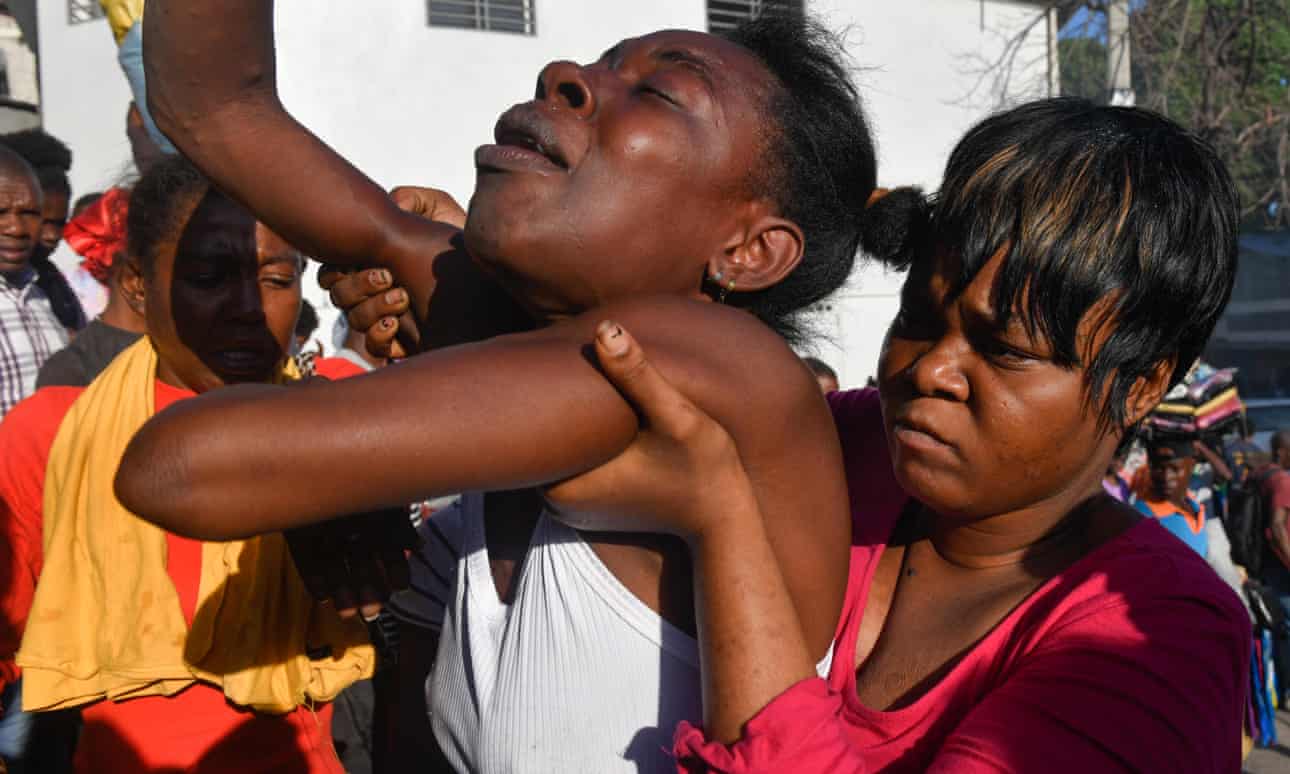
Hombres armados saquearon casas en Laboule y Thomassin, obligando a los residentes a huir de vecindarios previamente pacíficos.
El Programa Mundial de Alimentos afirma que el convoy de ayuda en el norte de Gaza ha sido bloqueado.
5/3/2024 | BBC News
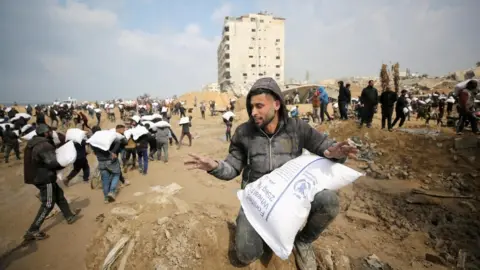
La agencia de la ONU informa que las fuerzas israelíes detuvieron un convoy de 14 camiones que transportaban ayuda hacia el norte de Gaza.
La tasa de fertilidad de Nueva Zelanda alcanza su nivel más bajo mientras disminuyen los nacimientos
18/2/2024 | The Guardian
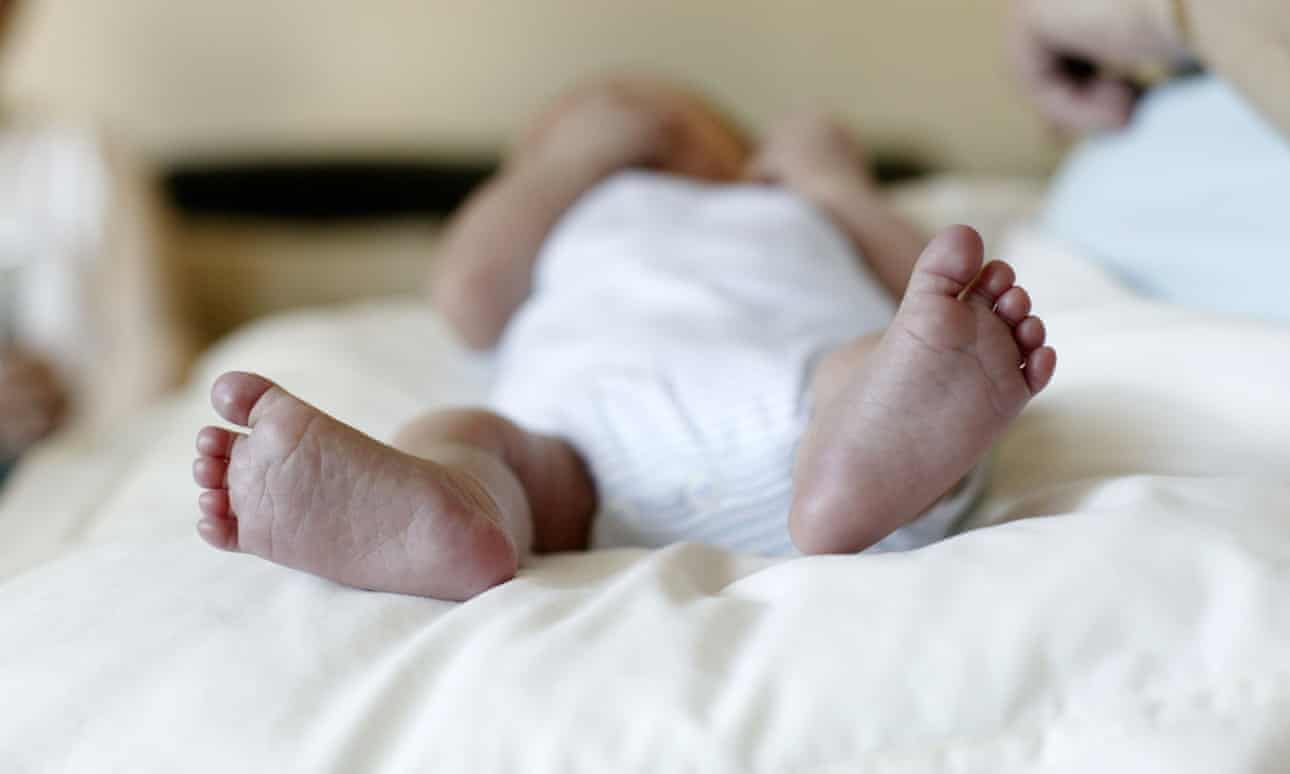
Analista dice que la disminución de nacimientos refleja una 'tendencia continua' de tamaños familiares más pequeños y tasas más altas de la ausencia de hijos.
Conflicto en Israel y Gaza, en Fotos
18/2/2024 | New York Times

Un ataque sorpresa de Hamas puso a Israel y al grupo que controlaba Gaza en guerra. Aquí están las imágenes del asalto y lo que ha seguido.
Las tropas israelíes lanzan redada en el hospital Nasser en el sur de Gaza.
16/2/2024 | The Guardian
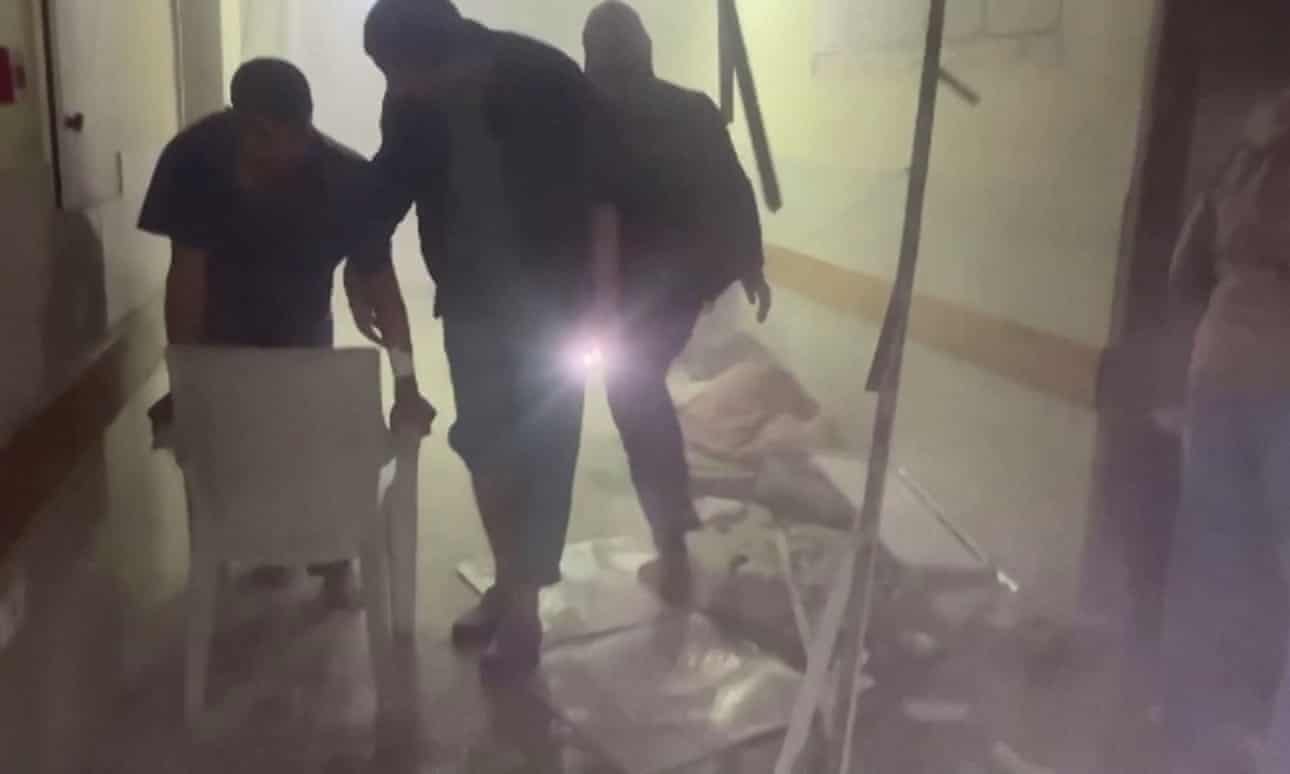
El personal informa que una persona fue asesinada y ocho resultaron heridas en un ataque, mientras el jefe de ayuda de la ONU advierte que una ofensiva en Rafah podría provocar un éxodo de refugiados hacia Egipto.
Biden 'desafiante en privado' sobre la caótica retirada de Afganistán en 2021, según un libro.
15/2/2024 | The Guardian
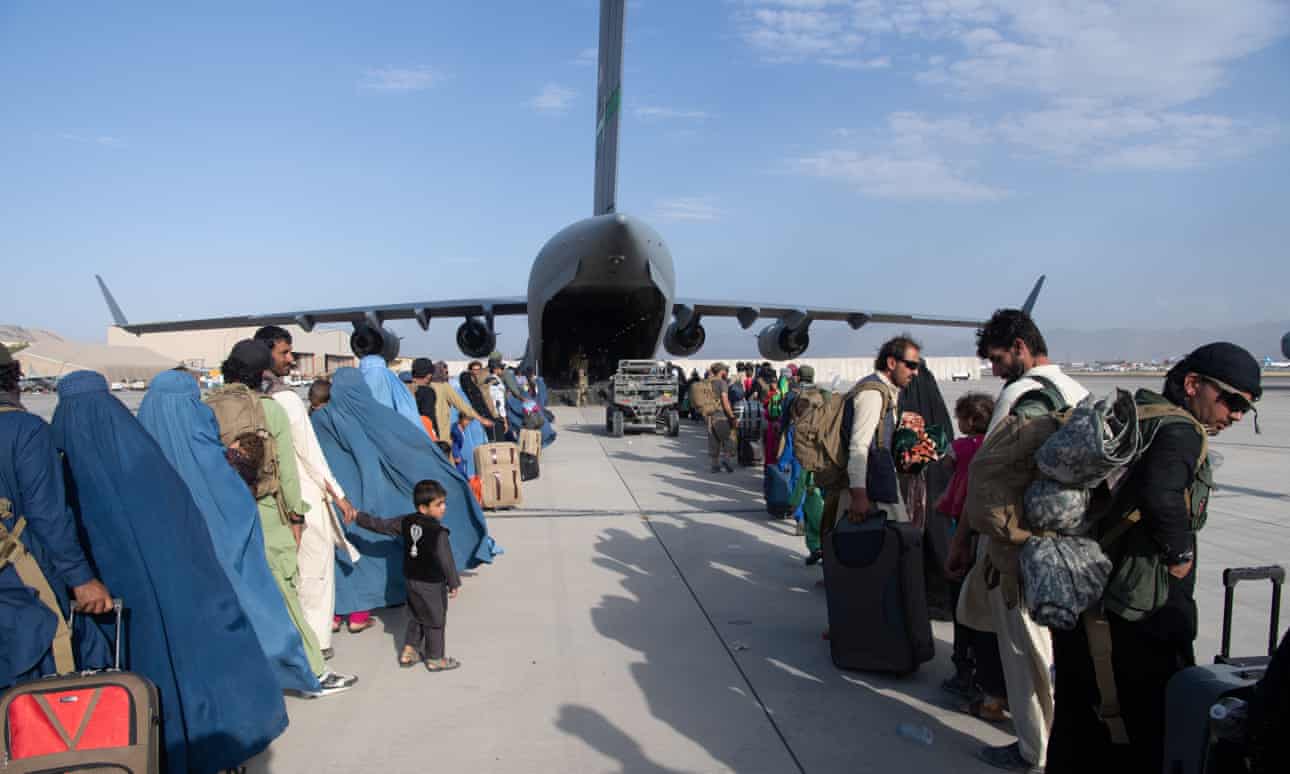
The Internationalists detalla cómo el presidente estaba decidido a dejar un país en el que 2,324 tropas estadounidenses murieron desde 2001.